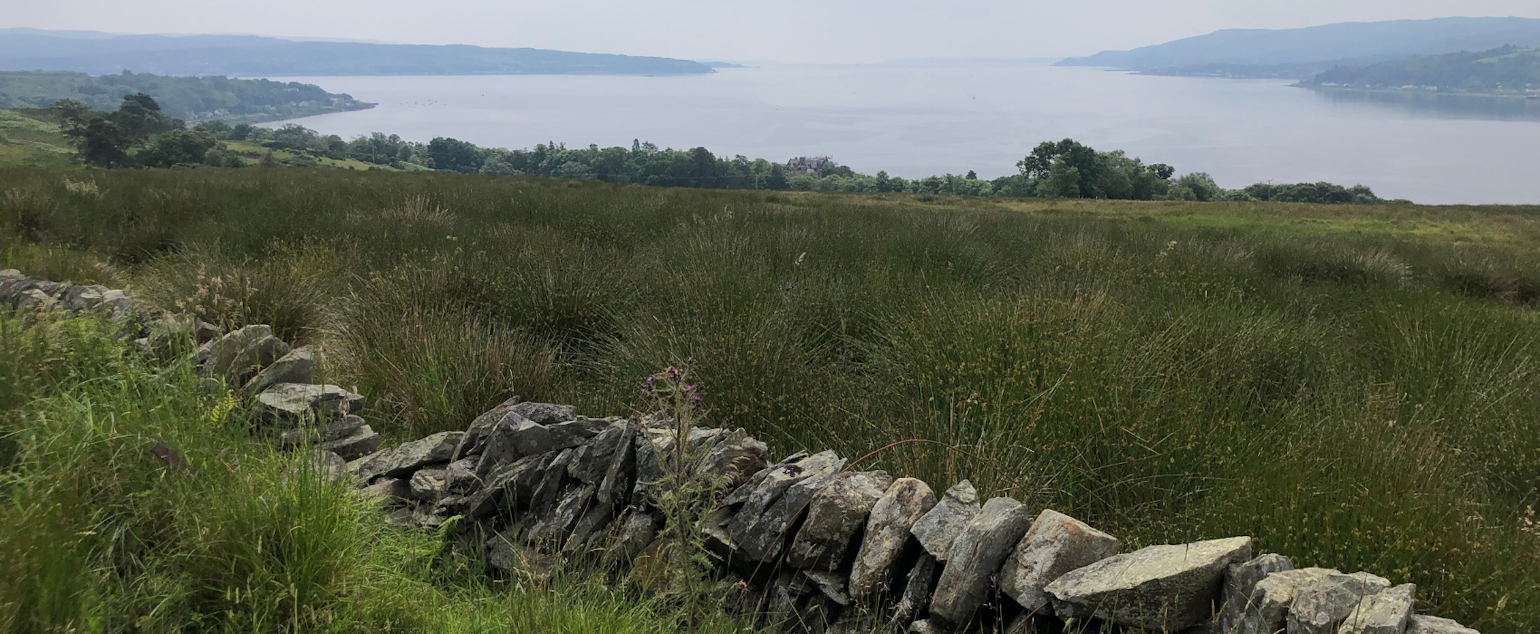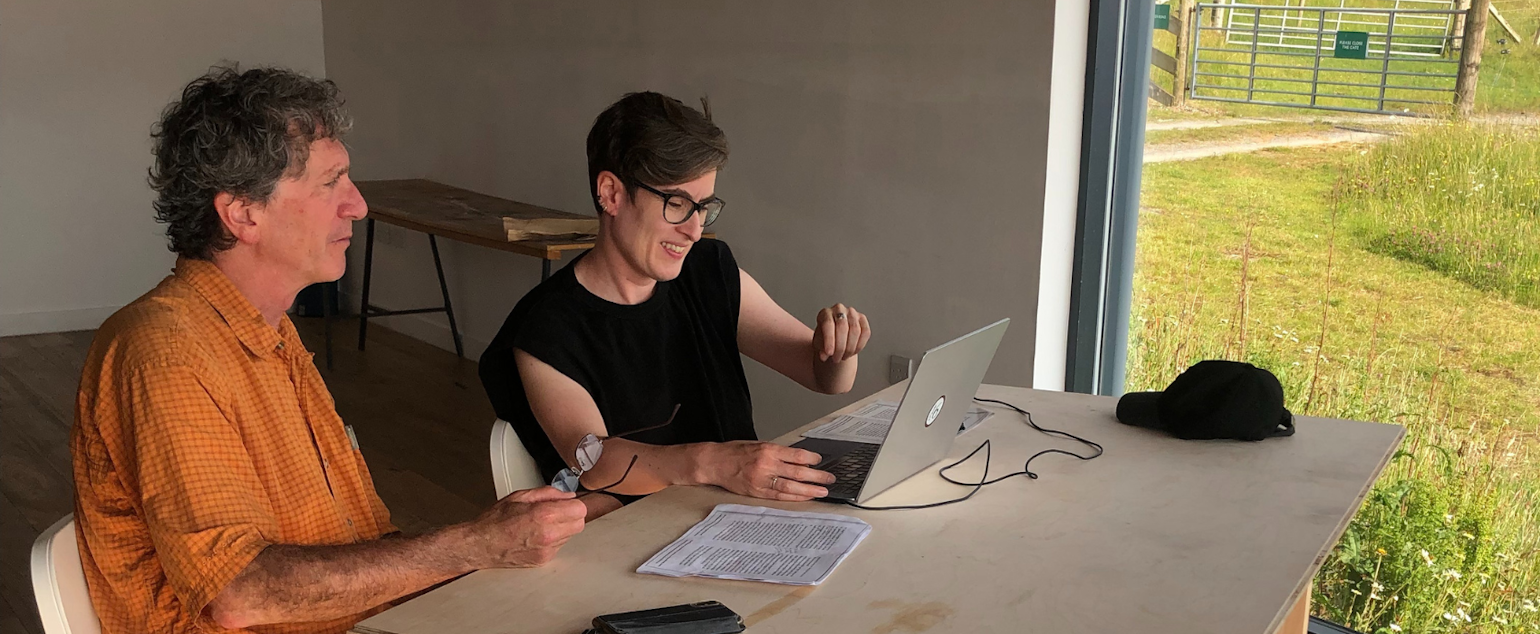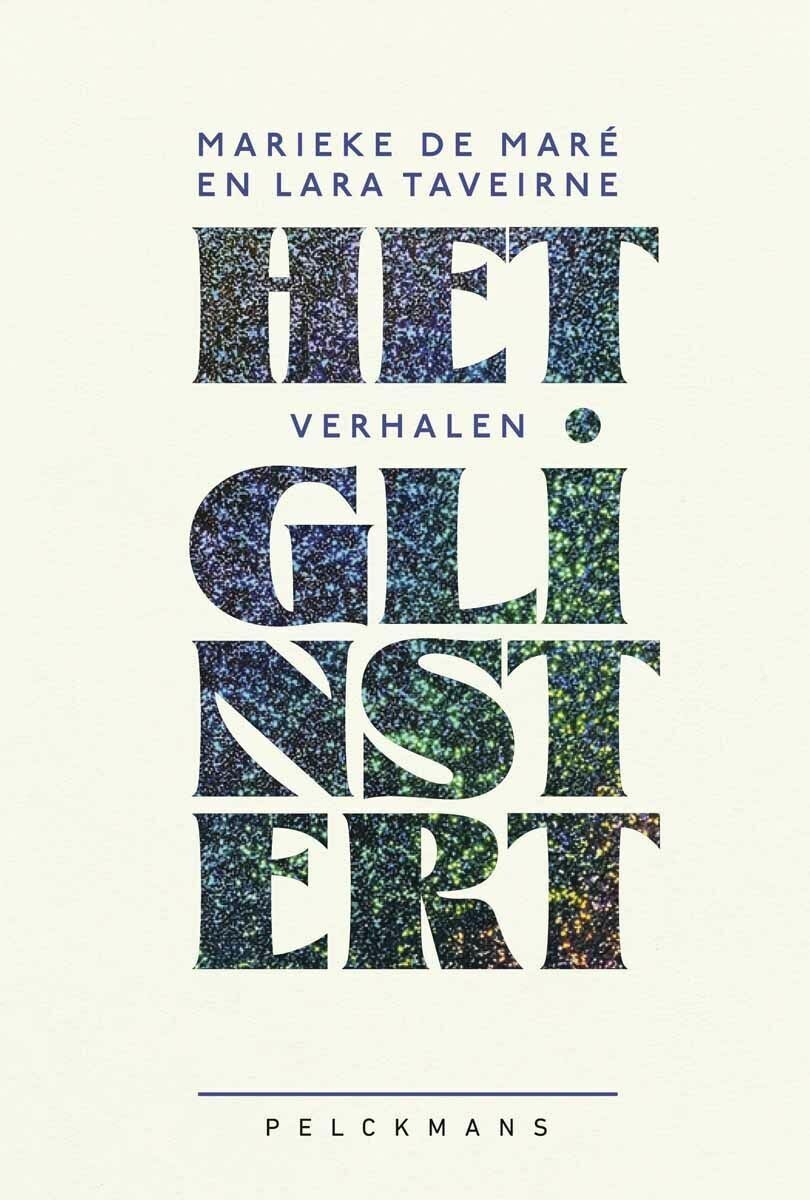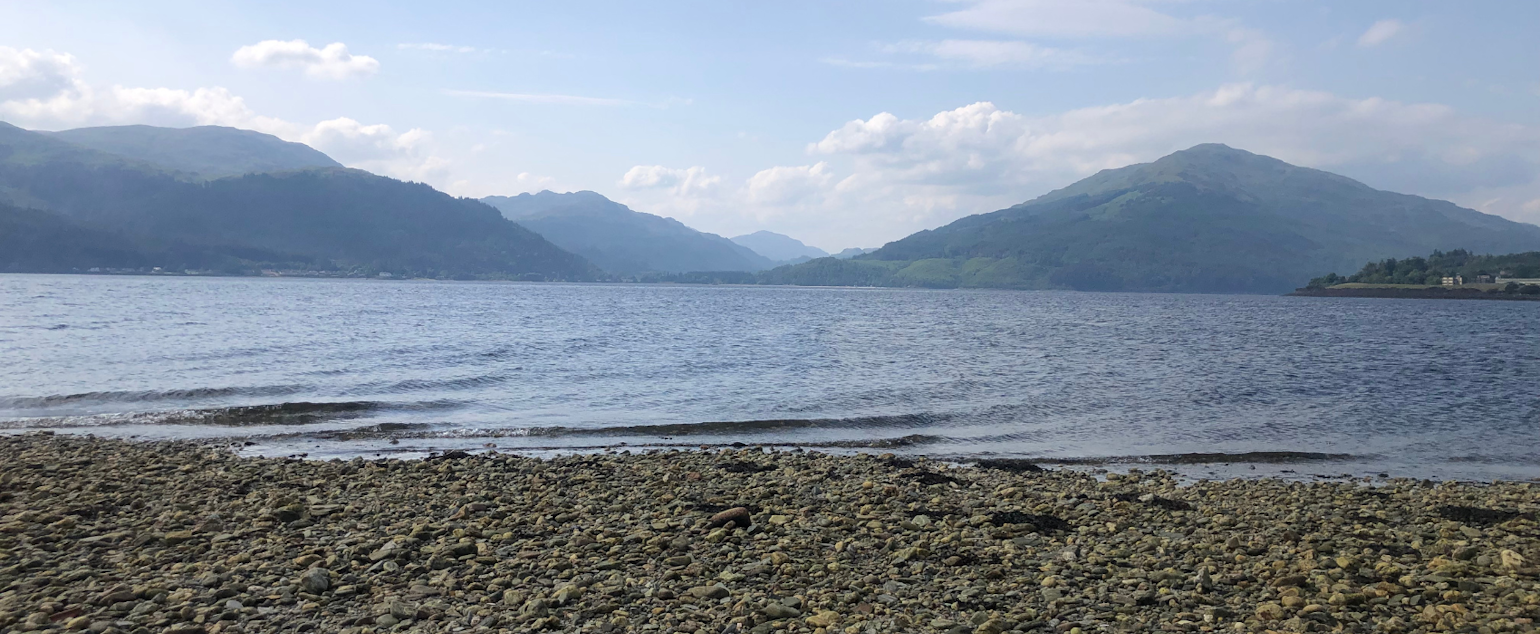Translator Eva Corijn: “Literary translation is a skill that takes a lot of practice”
In June, early-career translator Eva Corijn and established translator Jonathan Reeder stayed at Cove Park, Scotland for a one-to-one mentorship residency. During the literary translation residency, which is part of our Flip through Flanders programme, Eva and Jonathan translated the work of three Flemish female authors from Dutch to English.

Who, what, where?
Eva Corijn is a professional translator who translates from Dutch and Swedish into English. She focuses on writing on the creative side of the spectrum, for instance catalogues for art exhibitions about the Flemish Primitives. These days, Eva is working to establish herself as a literary translator. In 2024, she attended the BCLT summer school, translating work by Belgian author Bart Moeyaert. That same year, she was mentored by two-time International Booker Prize nominee Nichola Smalley as part of an initiative by the Swedish-English Literary Translators’ Association.
Jonathan Reeder, a native of New York and longtime Amsterdam resident, enjoys a dual career as a literary translator and performing musician. After many years as an orchestral bassoonist, he now translates contemporary Dutch and Flemish fiction and non-fiction as well as opera surtitles and essays on classical music. Recent literary translations include ‘Strange and Perfect Account from the Permafrost’ by Donald Niedekker, ‘Crackling Skulls’ by Roger Van de Velde, and ‘Down Old Roads’ and ‘The Boundless River’ by Mathijs Deen. He is presently working on the long-awaited English translation of ‘Cardboard Boxes’ by the award-winning Belgian author Tom Lanoye.

I learnt a lot from Jonathan – practical lessons about the art of translation that I keep pondering and will take with me in my career. It was interesting to compare Jon’s tips with what my first mentor taught me – some lessons were very similar, others quite different, which kind of reinforced my main takeaway of the residency: that literary translation is difficult and a skill that takes a lot of practice.Eva Corijn

Eva and Jonathan worked on two short stories from It Sparkles, a newly published series of poetic short stories by Lara Taveirne and Marieke De Maré: ‘Sheet of Paper’ by Taveirne and ‘Little Animal’ by De Maré. They also worked on ‘Because We’ve Had Enough’, an essay by Gaea Schoeters from ‘Optimistic Rage. Fix the sexism in literature’, a manifesto by writers collective Fixdit.
Cove Park is a residency in Argyll, beautifully situated on Scotland’s west coast. Up to fourteen artists from all possible disciplines can stay there at the same time.
We were extremely lucky with our fellow residents – six in all, in addition to us two – they were not only working on fascinating projects, but were all extremely nice to be with in the communal areas. Working with Eva was a rewarding experience for me, because I also learned a lot from her.Jonathan Reeder

Company of coloured mountains
It shouldn’t come as a surprise that Eva wrote a very poetic report about her time in Cove Park that we love to share here.
“Years ago, I translated a poem by the twelfth-century Japanese monk Saigyō Hōshi and stumbled across a few tricky characters. Together, they described ‘the colour of mountains in the distance’.
During our week at Cove Park, that untranslatable blueish green kept us company. The mountains on the other shore of the loch were tinted with rain on the morning we arrived. Everything smelt like wet moss. As the days went by, they treated us to an ever-changing palette. Fern-green on early mornings, a crisp promise of the day to come. The afternoons turned them hazy, a pale grey powderiness of heat. When we trekked down the hill in the evenings, we often stopped to admire their golden rims. Minutes later, they would settle into the darkest depths of midnight blue.
The colour of the mountains kept us company as Jon and I worked on our translations, picking apart syllables and cadences. ‘That’s not what the text literally says,’ one of us would warn. ‘What about what it is trying to say?’ the other would wonder.
Hours of translation were interspersed with meandering discussions, walks past Highland cows, chats with the other residents, cups of tea, fresh salmon for dinner. All of these infused our work. I’m sure our translations even contain traces of the rambling sheep that bleated outside our cabin in the evening, chased by the local farmer who told me they were due for a wee clippin’.
I feel immensely grateful for spaces like Cove Park, the support of Flanders Literature, mentors like Jonathan who generously share their expertise. My experience in Scotland reminded me that what we do, as literary translators, is worth something.
That worth may be hard to define. The colour of mountains is hard to define. But what beauty it contains, and how lucky we are to get to experience it.”